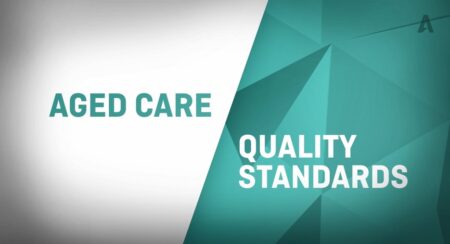ON 1 January 2019, the Single Aged Care Quality Framework was set in operation. This Framework replaced the aged care Accreditation Standards.
Around the same time, a new aged care cop, the Aged Care Quality and Safety Commission, set up shop and started policing the new standards.
A consultancy firm called CompliSpace, which advises aged care providers on how to comply with regulation, put out The Aged Care Impact Report – One Year On. The report surveys nursing homes on how that new Single Aged Care Quality Framework is working for them.
In a nutshell, it’s not.
This is not a surprise because most aged care providers complain about compliance.
The report says that compliance means providers are “forced to spend more time on paperwork and less time actually caring for residents”.
“The compliance burden is felt acutely by single homes that do not have the scale to provide comprehensive systems for staff.”
“The vast majority of staff are enduring more work and stress to meet the new standards, but government has not provided any funding to meet this need.”
These are all old and tired complaints and should be ignored.
But providers have also some new complaints and this suggests that, contrary to what the CompliSpace report says, the Framework might actually be working, or working better than the Accreditation Standards.
“The most pressing concern from aged care homes”, the report says, “is balancing the dignity of risk versus duty of care. This is followed by managing consumer preferences and choice and restraint and restrictive practices.”
These concerns all relate to one thing: nursing homes are expected to allow residents the freedom to enjoy themselves and can no longer tie them down on beds and in chairs or dope them to the eyeballs to keep them quiet and avoid falls and such like.
So, these new provider gripes suggest that the latest aged care cop is making a difference.
Still, compliance systems do not make nursing homes do a good job, they can only make them look like they’re doing a good job, which they may in truth be doing or not.
It could all be so much simpler and more effective with the adoption of a system of quality indicators.
Research commissioned by the Aged Care Royal Commission shows Australia could immediately establish independent, transparent, routine monitoring and public reporting of many aspects of aged care quality outcomes similar to countries like Denmark, Sweden, Germany, the Netherlands, and the USA.
The research, which was performed by the South Australian Health and Medical Research Institute (SAHMRI), shows a large range of quality outcome indicators can be produced from existing data without any burden to aged care providers.
This includes indicators for medication-related quality of care, falls and fractures, hospital re-admissions, hospitalisation for dementia/delirium, pain, premature mortality, pressure injury, utilisation of care plans and medication reviews, and weight loss/malnutrition.
Australia currently has a miserly three quality indicators for residential aged care.
Aged care providers have been fighting their introduction for years. Why? Quality indicators tell the truth about aged care quality and, unlike compliance systems such as the Accreditation Standards and the Framework, can’t be manipulated.
As the Aged Care Royal Commissioners said in a rare public statement:
“Unbiased measurement and reporting of performance is [sic] vital to create accountability and continuous improvement in the aged care sector. Without it, problems are hidden from sight and not addressed.
“It is unacceptable that in 2020 the aged care system is still without this. Had the Australian Government acted upon previous reviews of aged care, the persistent problems in aged care would have been known much earlier and the suffering of many people could have been avoided.”
